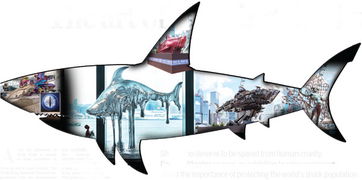
Content:
Summer is the peak season for fishing enthusiasts, and reservoirs offer some of the best fishing opportunities. With the warmer temperatures and abundant fish populations, it's no wonder that many anglers flock to these water bodies. However, to maximize your chances of success, it's essential to have the right summer fishing techniques and know how to fish in reservoirs effectively. In this article, we will provide you with valuable tips on how to master summer fishing techniques and make the most out of your reservoir fishing experiences.
Choose the Right Reservoir
The first step in successful reservoir fishing is to choose the right water body. Look for reservoirs with a variety of fish species, such as bass, catfish, and panfish. Research the reservoir's reputation, fish population, and fishing regulations to ensure it's a suitable spot for your preferences.
Timing is Key
During the summer, fish are more active in the early morning and late evening hours. The cooler temperatures during these times make it more comfortable for the fish, and they are more likely to feed. Aim to fish during the hours of dawn and dusk to increase your chances of catching fish.
Select the Right Lures and Baits
When fishing in reservoirs during the summer, it's important to use the right lures and baits. Live bait, such as worms, minnows, and crayfish, can be highly effective, especially for species like bass and catfish. For artificial lures, opt for colors and patterns that mimic natural prey, such as insects, small fish, and crayfish.
Fish Deep or Shallow
Summer fishing in reservoirs can be highly effective by targeting both deep and shallow waters. In the early morning and late evening, fish tend to move to shallow waters to feed. As the day progresses, they move deeper to escape the heat. Experiment with different depths to find where the fish are concentrated.
Use a Variety of Techniques
There are several techniques you can use to fish in reservoirs during the summer. Here are some popular methods:
a. Casting: This is the most common technique for reservoir fishing. Cast your lure or bait into the water and retrieve it with a steady, smooth motion. Pay attention to the retrieve speed and the way the lure or bait behaves in the water.
b. Trolling: Trolling involves slowly dragging a lure or bait behind a boat. This technique is particularly effective for targeting species like bass and walleye. Use a variety of speeds and depths to cover more water and increase your chances of finding fish.
c. Still Fishing: This technique involves anchoring your boat or fishing from the shore and letting your bait or lure sit in one spot. It's an excellent way to target species like catfish and panfish.
Keep Your Equipment in Good Condition
Summer fishing can be challenging due to the increased heat and humidity. Ensure that your fishing equipment is in good condition to avoid any issues during your trip. Regularly maintain your rods, reels, and lures to keep them functioning smoothly.
Stay Hydrated and Protected from the Sun
Summer fishing can be physically demanding, so it's crucial to stay hydrated and protected from the sun. Wear a wide-brimmed hat, sunglasses, and apply sunscreen to minimize the risk of sunburn and heat-related illnesses.
Be Patient and Observant
Lastly, fishing in reservoirs during the summer requires patience and observation. Fish may be more challenging to catch during the heat of the day, so be prepared to wait. Pay attention to the water's surface, as fish often feed near the top during the summer. By observing the behavior of the fish, you can make more informed decisions about your fishing techniques.
In conclusion, summer fishing in reservoirs can be an enjoyable and rewarding experience if you follow the right techniques. By choosing the right reservoir, timing your fishing trips, using the appropriate lures and baits, and employing various fishing techniques, you'll increase your chances of success. Remember to maintain your equipment, stay hydrated, and be patient. With these tips in mind, you'll be well on your way to becoming a master of summer reservoir fishing.












